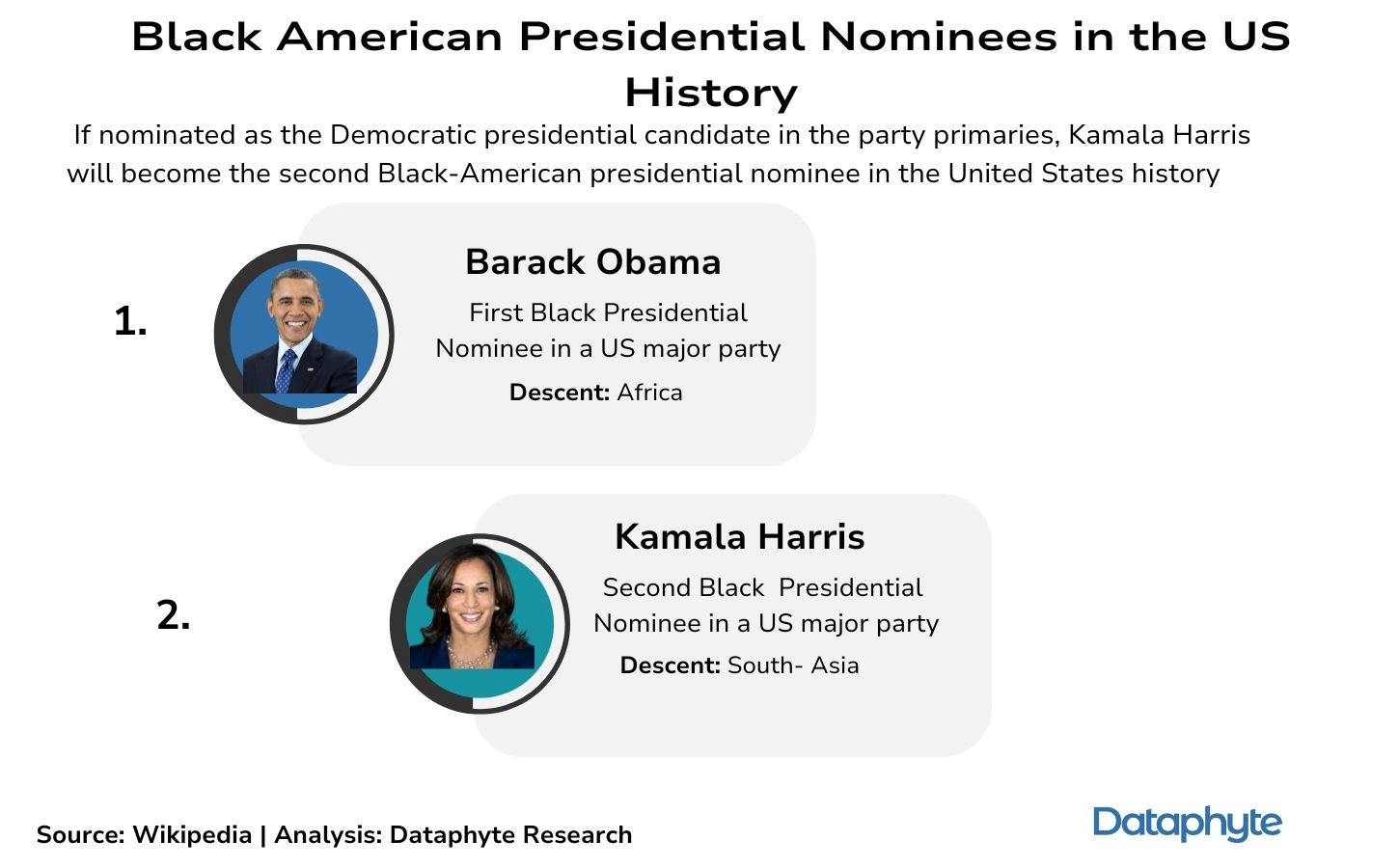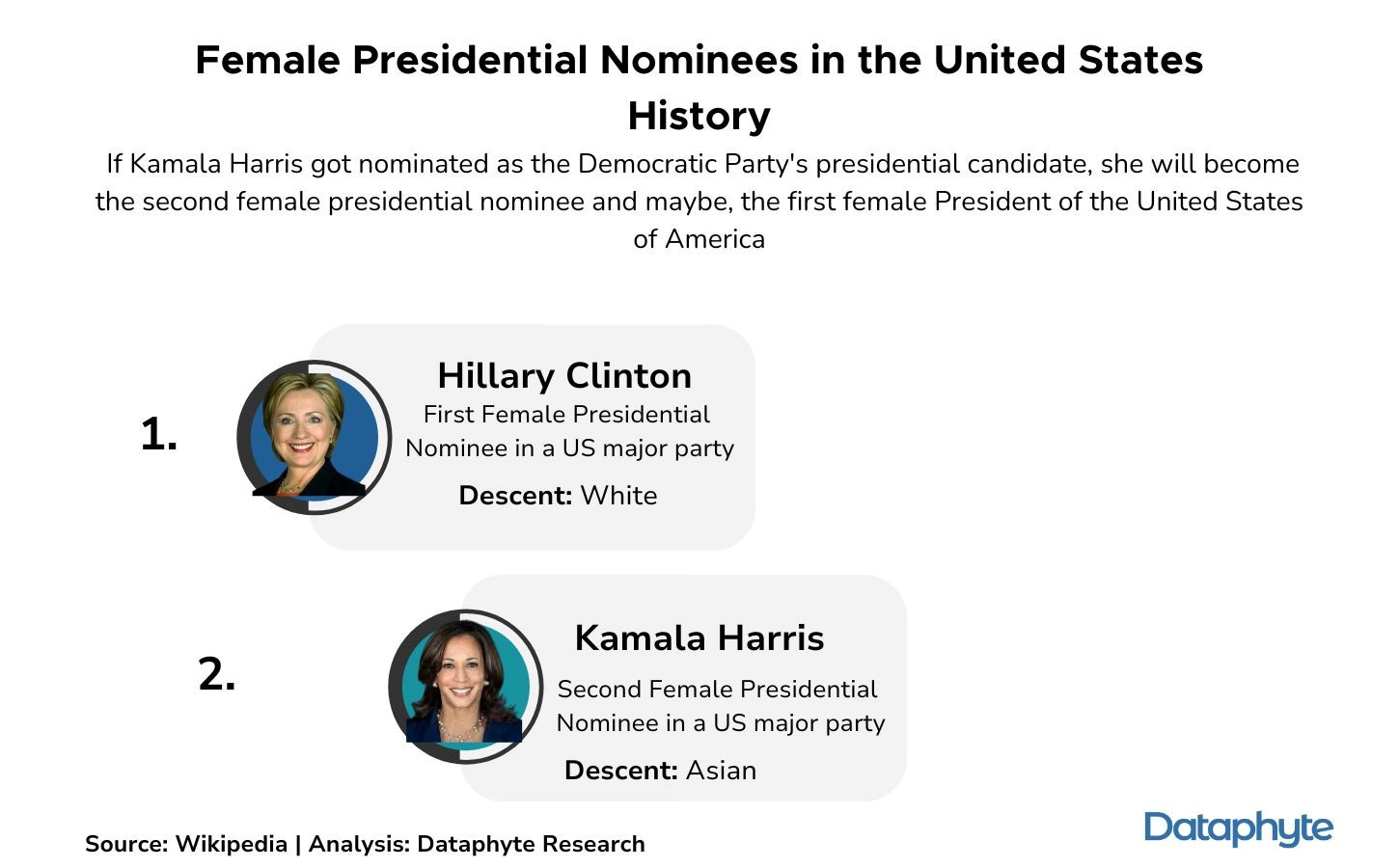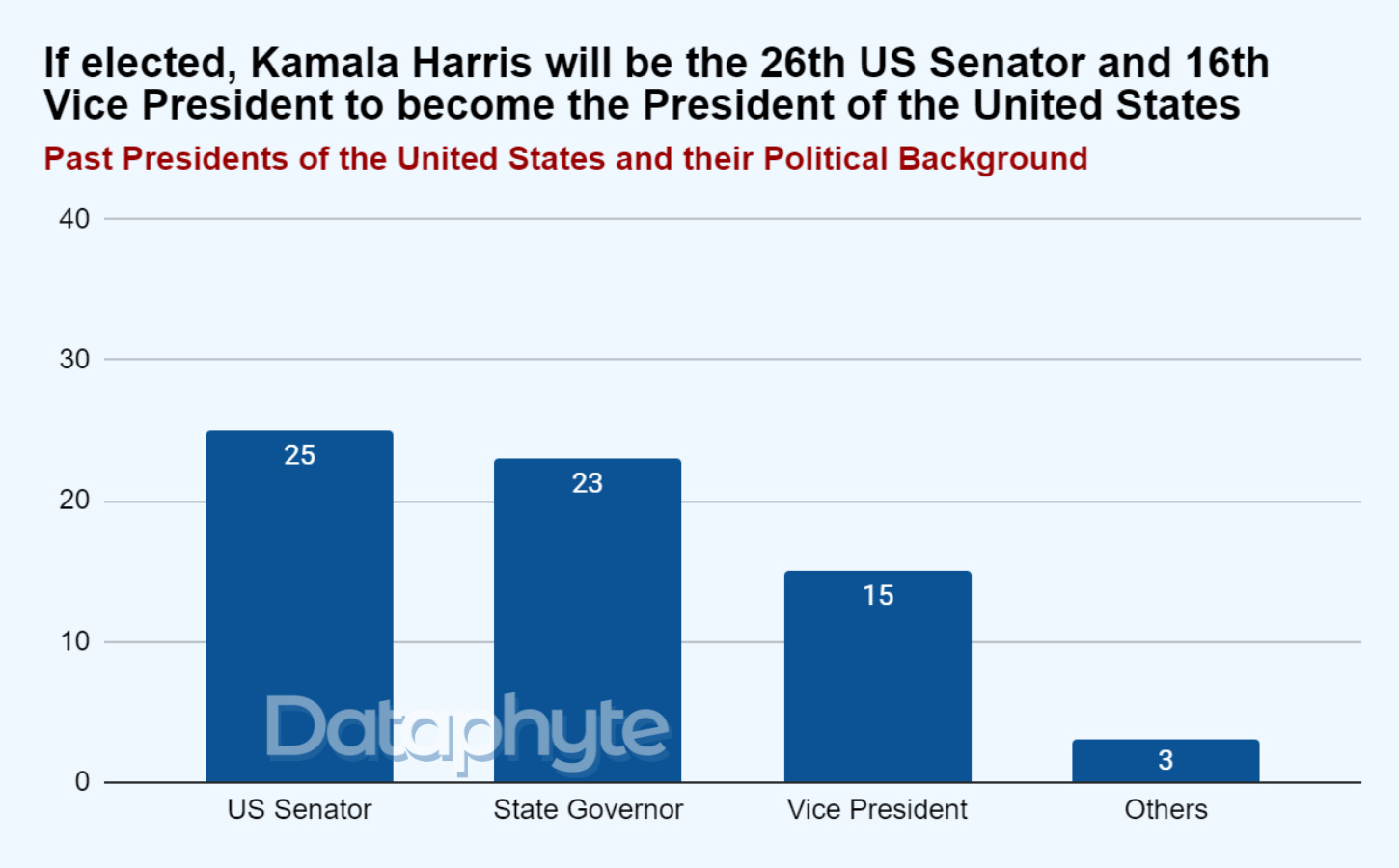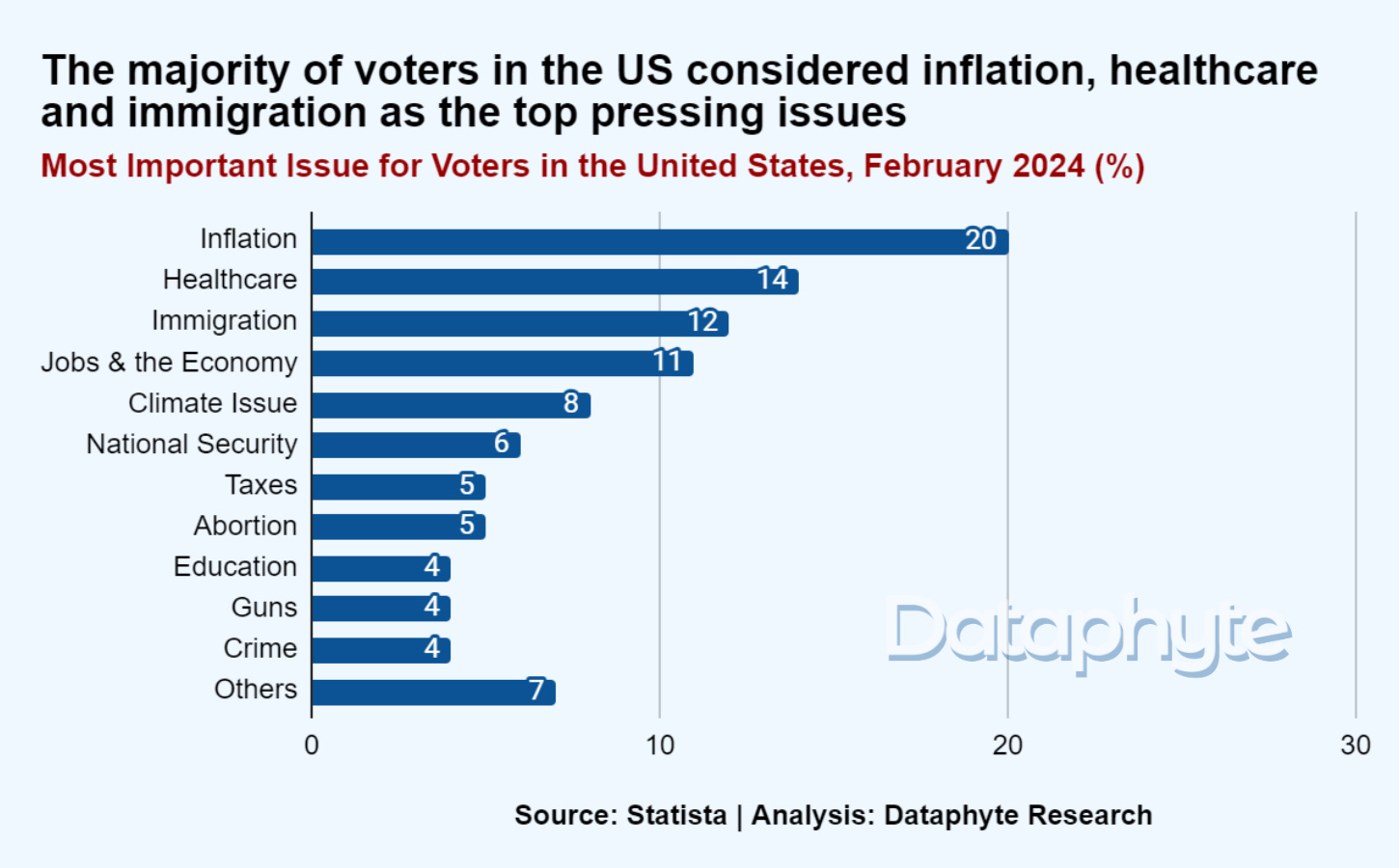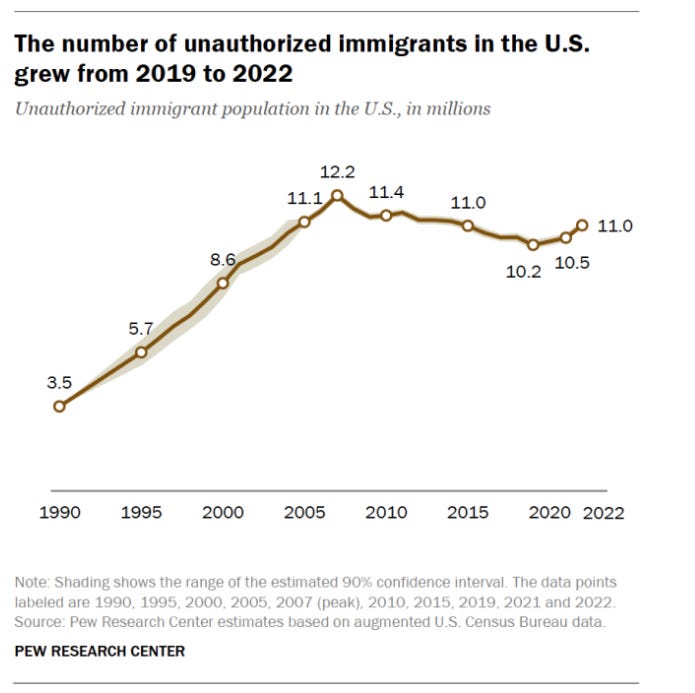Harris 2024: Biden’s Best, Trump’s Test
In a move that has sent shockwaves through the US political landscape, President Joe Biden stepped out of the 2024 presidential race against his main opponent, Donald Trump, and endorsed Vice President Kamala Harris as the best to replace him as the Democratic nominee.
This historic showdown between Kamala Harris and Donald Trump is poised to highlight the stark ideological divide between both candidates which may shape the discourse on democratic principles, immigration policy, economic growth, and the ever-evolving concepts of Diversity, Equity, and Inclusion (DEI).
Kamala’s ascent as the presumptive Democratic presidential nominee could transform the tenor of the U.S. election, spotlighting gender and racial dynamics in ways that could redefine the campaign's energy and focus.
After her endorsement, Kamala Harris has garnered sufficient support from Democratic delegates to become the party's main nominee against Donald Trump. However, the official selection will take place at the Democratic National Convention in August.
A survey by the Associated Press shows that over 3,359 delegates across 57 states in the United States have declared support for Kamala, surpassing the 1,976 delegates required to secure the party's nomination.
Kamala Harris's rise as the first female, first Black American, and first South Asian American Vice President in 2021 highlights deeper issues of racial and gender disparities ingrained in American society.
As her presidential bid unfolds, these issues may start to surface and influence the narrative of the 2024 presidential election.
The racial undertone within the American context is a key factor. Should Kamala Harris receive the nomination as the Democratic party's presidential candidate, she will become the second Black American-presidential nominee of a major US party, following Barack Obama, the first African-American presidential nominee in the United States.
The other factor hints at the gender dynamics of America’s politics.
The United States has never had a female president. A notable milestone in this regard was in 2016 when Hillary Clinton became the first woman to secure a presidential nomination from a major U.S. political party. She lost to her major opponent from the Republican Party, Donald Trump.
Again, if Kamala Harris secures the nomination as the Democratic Party's presidential candidate, she will become the second female presidential nominee and, maybe, the first female president of the United States of America.
Kamala Harris has had a distinguished career as a lawyer, serving as California's Attorney General and as the District Attorney of San Francisco. Her political career includes her tenure as a U.S. Senator from California and her current role as Vice President. As a senator, Harris advocated for stricter gun control laws and reforms in healthcare and taxation.
Compared to past U.S. presidents, Kamala Harris possesses a distinguished career and extensive political experience, qualifying her for the office based on merit, similar to her predecessors.
If elected as the Democratic candidate and as the US president, Kamala Harris will be the 28th lawyer to be in that position since 1789.
Lawyers like Kamala Harris make up 59% of past US Presidents.
Regarding her political background, Kamala Harris has served as a U.S. Senator from California and is the current United States Vice President. She will be the 16th Vice President to assume the office if elected president.
This suggests that, if she attains the presidency, it will be based on merit, as her political background is on par with those who have previously held the position.
Despite research showing that many Americans see women as equally qualified for leadership roles, gender bias persists, making it challenging for women to reach positions they merit.
In 2022, women made up only 28% of the U.S. Parliament, highlighting the significant underrepresentation of women at the helm of decision-making.
Apart from the effect of partisan affiliations on electoral decisions, citizens' choice of candidate is also largely driven by the socio-economic issues they deem most pressing.
A survey by Statista in February 2024 reveals that the most important issue for 20 percent of Americans was inflation. Other top pressing issues are healthcare, immigration issues, jobs, and the economy.
Another report, by Pew Research, shows that the 2024 presidential campaign is unfolding against a backdrop of intense debates over issues such as immigration, unemployment, racial and ethnic diversity, and reproductive rights.
These topics among others will influence the direction and outcome of the election.
Illegal Migration
Illegal immigration remains a significant concern in the US, contributing to population growth and placing increasing strain on public services such as housing, healthcare, food banks, transit, and other social services. Consequently, it remains a crucial policy issue for the country and its citizens. Between 1990 and 2022, illegal immigrants increased from 3.5 million to 11 million.
Source: Pew Research Center
A survey conducted by Statista on public opinion regarding immigration levels in the U.S. from 2001 to 2023 indicates that a majority of Americans are dissatisfied.
In 2023, 63% of surveyed Americans expressed dissatisfaction with the level of migration in the country. This indicates that immigration is a critical issue for US citizens and reflects the criticism Kamala Harris has faced regarding her role in immigration policy during the Biden administration.
As the Vice President, Kamala Harris was assigned by Biden to investigate the root causes of migration from Central America in 2021, such as poverty, violence, and corruption. During that period, most unauthorized migration originated from Mexico and Central America.
This has birthed significant criticism for her handling of the issue, which could become a major concern during her campaign and one of the determinants of her support among voters.
Income Gap
Another social issue that may shape the election landscape in the 2024 US Presidential Election is the increasing income gap between the rich and poor.
The rise in economic inequality in the U.S. is linked to various factors, including technological advancements, globalization, the decline of unions, and the decreasing value of the minimum wage.
Over the past 21 years, the income disparity between the richest 10% and the poorest 50% in the United States has widened, which may erode social cohesion and lower economic growth.
Regardless of the causes, the continuous increase in inequality in the country has raised concerns among the public and may inform citizens’ voting choice in the 2024 US election.
Unemployment
Despite the reduction in the overall unemployment rate in the US since 2005, a disparity gap persists in unemployment rates across major racial groups.
This highlights systemic challenges within the labor market, where structural barriers continue to affect employment opportunities for minority groups.
Addressing these disparities requires comprehensive policy interventions and targeted programs to ensure equitable employment opportunities for all racial groups, promoting a more inclusive and fair labor market.
These issues and other identified concerns by US voters may inform who they choose between Kamala Harris and Donald Trump in the imminent presidential election.





